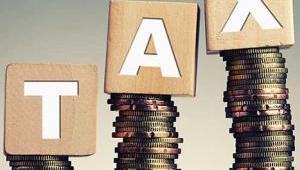The Soft Drinks Industry Levy, which took effect on 6 April, targets added-sugar drinks with a content of more than 5 grams per 100ml and will charge a higher rate for drinks that exceed 8 grams per 100ml.
It is expected to raise £240m a year, which will help fund primary school sports and PE programmes and healthy school breakfast clubs.
The sugar tax is part of a government initiative to tackle childhood obesity, which cost the NHS in England an estimated £5.1bn on overweight and obesity-related ill health in 2014-15.
According to the government, more than 50% of soft drinks manufacturers have already reduced their sugar content since the tax was announced in March 2016.
Treasury minister Robert Jenrick said: “We want to persuade manufacturers to reformulate their drinks and lower the sugar content.
“In the time between announcing this policy and it taking effect, more than half of all soft drinks have been reformulated to lower the sugar content, including many of the best known soft drinks. We hope that will continue in the months and years to come.”
Public health minister Steve Brine added: “Our teenagers consume nearly a bathtub of sugary drinks each year on average, fuelling a worrying obesity trend in this country.
“The Soft Drinks Industry Levy is ground-breaking policy that will help to reduce sugar intake, whilst funding sports programmes and nutritious breakfast clubs for children.”
The levy’s introduction came as Public Health England data revealed that children miss 60,000 days of school each year in England due to tooth extractions.
Tooth extraction is the most common reason for hospital admission in five to nine year olds in England.
Izzi Seccombe, chair of the Local Government Association’s community wellbeing board said these figures were “shocking” and called for “urgent investment in oral health”.
She added: “Councils run a range of oral health programmes in schools and local communities.”
However, there was criticism of the tax in some quarters. Christopher Snowdon of the free market Institute of Economic Affairs argued that sugar taxes had failed to reduce obesity when they have been tried in other countries.
“The UK will be no different,” he said.
“The sugar levy is a cynical revenue raising device that will clobber people on low incomes.”
Snowdon predicted it marked that beginning of “tobacco-style regulation of the food supply”, adding: “The inevitable failure of the sugar tax will be followed by more taxes, more bans and more unwanted reformulation.”











